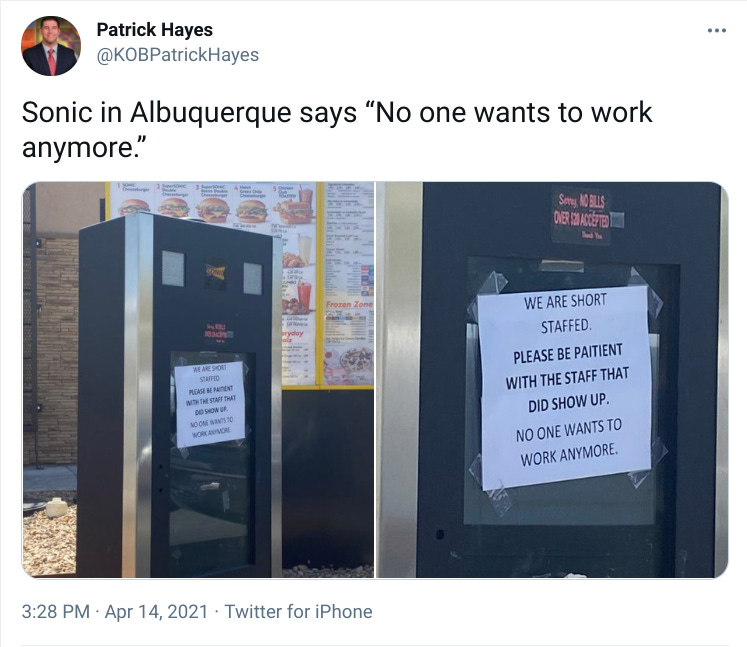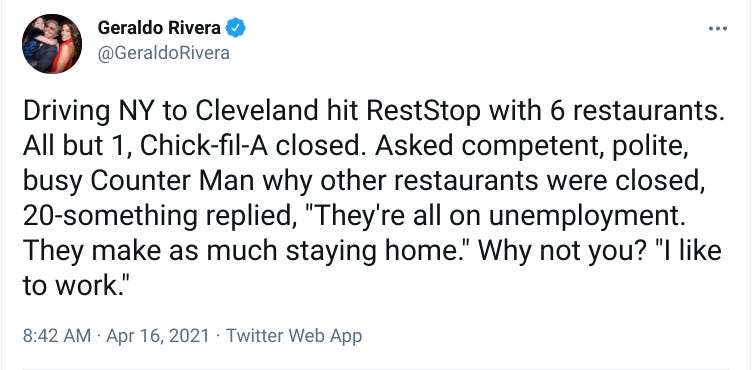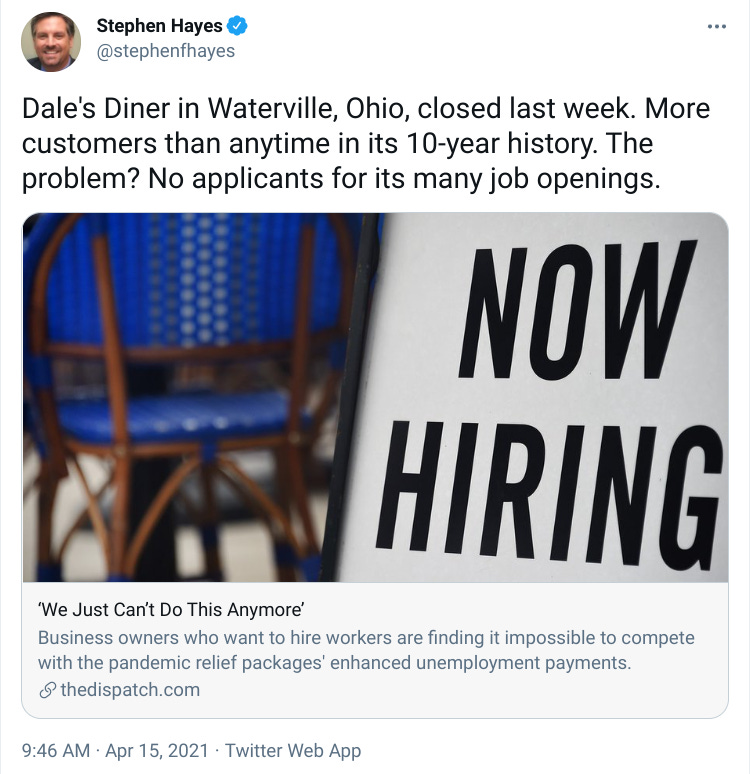We undervalue the humanities in this society.
If you were to ask some people—especially people in tone-setting, decision-making, policy-influencing roles in our society—they’d tell you that the only education worth pursuing these days is one in a STEM field. What’s the sense in going to school to read old books and think about feelings? You should be learning how to build rocket-ships, fighter jets, and law-enforcement robot dogs.
Maybe some light accounting on the side. But creative writing? Pftt. That doesn’t help business.
Well, I disagree.
You see, I’ve done a bit of creative writing myself, and there are some valuable lessons to take away from learning how to tell a story well. You have to know how to map out a compelling plot line, manage the pace of rising and falling action, build realistic worlds for your characters to inhabit—and, most importantly, you have to learn how to create believable characters.
It’s easy to fall into the trap of seeing your characters as simply a means to an end, rather than living, breathing people with realistic motivations, desires, feelings and behaviors. Many people fail at this—some of them successful authors in their own right. They develop characters as little more than plot devices, or vehicles for their own thinly-veiled monologuing. (Or, in the case of some male authors writing female characters, vehicles for absurd personal fantasies.)
It’s tough to craft a whole, lifelike person out of thin air, but it’s crucial if you’re interested in telling a story.
I don’t see what this has to do with business, and I’m in the business of Business, pal, so mind your own business!
Well, again, this is where we disagree. Because it seems like many of the people gathered in this virtual Hilton ballroom today have been engaging in some creative writing of their own, and—if I’m being perfectly honest here, and respecting the $750 you paid for this seminar and box lunch—you’re not doing a terrific job of it.
I mean, look at these writing samples you submitted.
As your creative writing professor, I… I have to tell you, these stories just plain suck. I simply don’t believe the narrative you’re crafting, and the problem is with one character. You’re telling me about a person who doesn’t want to work anymore. Well, who is this person? What’s their motivation?
Well, they used to work, but they got too much money from the government, and now they’d rather lay around on their behinds collecting checks than working, unlike me.
I see. So—and I’m inferring a few things, from the world we both understand this character to live in—you’re saying this person, who previously worked the kind of jobs you’re looking to fill, they simply don’t want to work anymore. They received a total of $3200 in stimulus over the last 13 months, plus an additional $600/week in unemployment for a while, before that shrank to $300, and they decided that that money was enough to retire to a life of leisure on. This is because they are different from you, who—and I’m inferring that you see yourself as the protagonist in this story—is possessed of a stronger fundamental work ethic than they are, the kind of grit-n’-gumption work ethic that allowed you to become the owner of three Soup’R Crackers franchise locations and one heavily-financed Ford F-150 Limited Edition pickup truck.
That’s correct.
Okay. Sure, I mean… I guess that’s a story you could tell.
The pickup truck also has the optional tailgating package, too.
That’s terrific. But for the sake of storytelling, Let’s consider a handful of other reasons why this character might not want to work a low-paying, public-facing job right now. It might help flesh out your story!
1) They fear contracting COVID-19, the disease caused by the novel coronavirus that has killed well over half a million people in this country alone in the last year.
Let’s just start there. There is still a pandemic going on, and only about a quarter of the population of the United States is fully vaccinated against the disease at this point, a number that is likely heavily weighted toward higher-income people who have more resources, time and flexibility in pursuing said vaccination.
But that’s just a starting point.
2) They have children, elderly or disabled family members, or other people in their life who the pandemic made caring for more difficult.
It’s a possibility—a likelihood, even—that some portion of your potential worker pool has been diminished by the absence of people who would like to work but have been forced to stay home to tend to virtual schooling or because other previously-viable care scenarios were made unworkable by the great upheaval of the last year-plus.
3) They didn’t necessarily need the job, and when the risk-reward proposition of their employment changed significantly, it wasn’t ideal for them anymore.
Perhaps they were a teenager or college student, or a semi-retired older person who chose to work to bring in a bit of additional income, but decided to forgo that income given the ongoing state of things, and the fact that pay likely hasn’t gone up, and certainly hasn’t gone up enough to offset the vastly increased difficulty and risk.
Or maybe they worked this job to supplement a creative career—someone who balanced waiting tables and performing as an actor or musician, for instance—and when both fields dried up at the same time, they were forced to pursue a different career, one that might have more traditional “office”-type hours.
Building off of each of these…
4) They chose to find a different line of work.
Working at a restaurant is a dangerous and demanding job even in normal times, but far more so when the only customers in their restaurants for much of the last year have been the most flagrantly risk-dismissive people in our society, people who can’t even be asked to wear a mask in a freaking drive-through window, even though you can just keep a mask on the dashboard and put it on for the thirty seconds it takes to exchange money for food as a way of saying “I see you as a human being whose life has more value than simply as a vending machine delivering me a Quesarito”.
It’s possible—and hey, we’re just workshopping here—it’s possible they just don’t want to deal with your shit anymore.
Maybe some of these things are true. Maybe it’s a combination of these factors, and maybe it’s something I haven’t even thought of. It’s even possible that there is some kernel of truth to the story you’re telling about money being the reason!
But you need to write a better character if you want to tell this story, because right now the story you’re telling isn’t an especially flattering one. You’ve conjured for your readers a person—one who may or may not be loosely inspired by a real person, it doesn’t really matter—for whom a small, temporary additional stipend from the government was the only lifeline they needed to get away from working for you, an employer of last resort, someone whose business depends on desperation.
It might convince some readers, but to most of us, it just makes you look like an asshole. Heck, it makes me picture a basic-cable charity pitch in which you’re the soft-focus societal ill, and a sad-voiced celebrity spokesperson is telling me that for just three hundred dollars a week, you can save a person from working this awful job.
The situation isn’t unsolvable, though.
America is a forgiving country, at least if you’re a small business owner. In most cases, our society is set up to lionize you. It’s almost reflexive. We want to fete you at the Fourth of July parade and at Little League baseball games and ask your opinion on city council races and sidewalk-widening projects. But you’ve got to help us help you, because you’re bad at storytelling.
Instead of creating the character you’ve tried to create so far, you could level with your readers. You could simply say:
“I’m sorry, but we’re shorthanded right now. This has been a time of great societal upheaval, and we’re doing our best to figure out how to work under a new normal. We understand that many of the people who’ve worked here in the past are unable to work for a variety of personal reasons, and we appreciate your patience as we work to re-staff; we’re looking forward to being back at full strength soon.”
Now, I understand that you may not want to go this route.
First, it makes you look reasonable—kind-hearted, even—and I know that you see that as a sign of weakness. You don’t want to look weak. That’s why you bought that truck. [revs engine] Also, candor and understanding like this sets a standard of humanity that you may not wish to be held to in the near future when society will, in all likelihood, revert to a more value-extraction-friendly version of our social contract where you can go back to your old ways with less hassle.
So I’ve got a backup angle.
“I’m sorry, but we’re shorthanded right now. The most foul swamp dragon Mephaestaloun the Malevolent has kidnapped my staff and taken them to his home in the brackish Hell Swamps of Darkest Flaerghyria. He is demanding a daily blood sacrifice, and I am working hard to locate a reliable vendor for the golden-haired goats he craves, but shipping delays caused by the recent issues in the Suez Canal have complicated the matter. Rest assured that I continue to seek the Broadsword of the Valiant from Lady Trythos on Ice Mountain. Soon, I will plunge its gleaming diamond blade deep into the dragon’s coal-black heart, liberating both the good people of the Eternal-Sun Lands and the hardworking waitstaff of this restaurant (and the State Street location, which has faced similar staffing issues.) We appreciate your patience; we’re looking forward to displaying Mephaestaloun’s head as a trophy soon.”
See, now that’s a story. It’s got drama. Excitement! Danger. And it’s a story you can serialize. You ever check out how many volumes some of these fantasy series have? This can be dragged out over a dozen books, easy. People will be coming back just to hear more. Sure, it’s a bit of a stretch, but if we’re committing to spinning a fantasy to make you look better, let’s really commit. It’ll be a welcome distraction, and not just from the slow service.
Because, between you and me? [whispers] Your food sucks, too.
—Scott Hines (@actioncookbook)







we all agree amazon is evil and their working conditions suck.
but if i've got my choice of slinging burgers for $9/hr or being a human robot for $18+ bennies I'm taking the latter every time.
I had no idea that Geraldo drives an F-150. But I *do* think you're underestimating his talent for fiction, dating all the way back to Al Capone's vault.